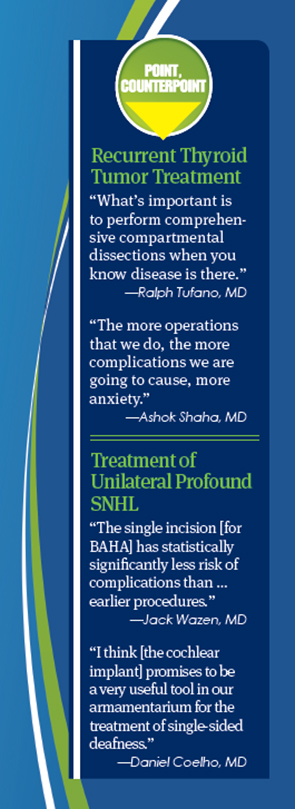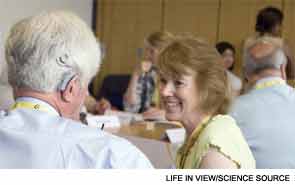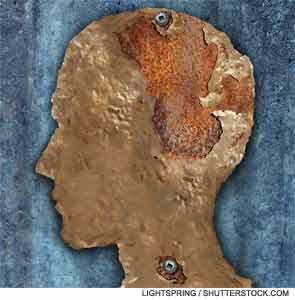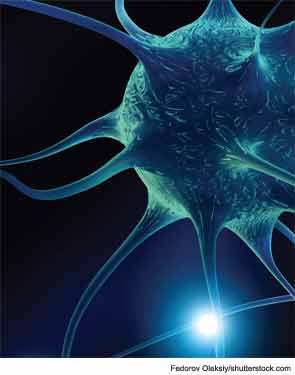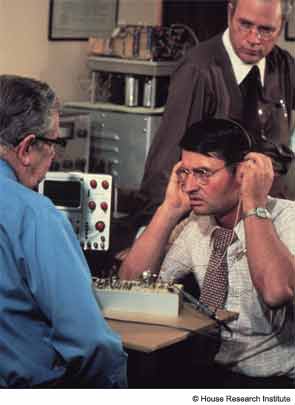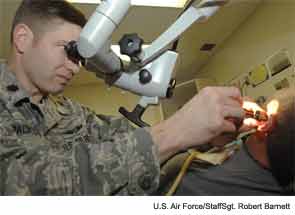Experts weigh the pros and cons of surgery for recurrent thyroid tumors, and safety of bone-anchored hearing aids versus unilateral cochlear implants in a panel discussion at the Triological Society’s Combined Sections Meeting in Miami Beach, Fla. in January
